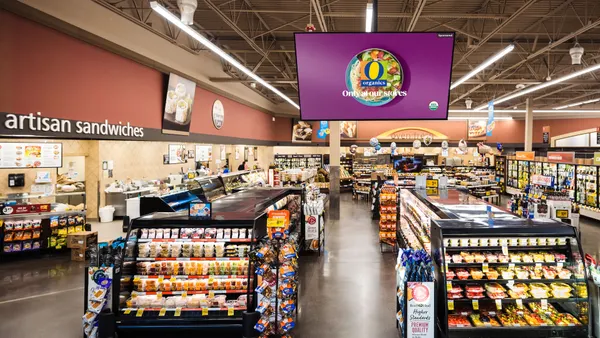Brief:
- Alibaba, the Chinese e-commerce company whose sales rose 56% to $7.51 billion in Q1 2017 from a year earlier, began testing a facial recognition tool that lets people make payments by smiling into a camera. The company's Ant Financial affiliate is testing the service at KFC restaurants in Hangzhou, where Alibaba is based, TechCrunch reported.
- A 3-D camera at KFC checkout kiosks scans the customer's face to verify their identity, so paying doesn't require a wallet or a smartphone, though users can add phone number verification for added security. Customers must have already registered for the Alipay app and enabled its facial recognition feature.
- Alibaba first demonstrated how facial recognition could be used for payments at a conference in Germany two years ago, Recode reported. Now, the company uses technology called Face++ from Chinese startup Megvii.
Insight:
Alibaba revolutionized e-commerce in China with payment features designed to reduce friction and the likelihood of theft and fraud by making transactions more transparent between buyers and sellers. The company is an investor in Yum China, which operates fast food franchises like KFC and Taco Bell in the country, making its testing of "smile to pay" in Hangzhou's KFCs a clear fit.
Like Amazon in the U.S., Alibaba is seeking to integrate digital tech with brick-and-mortar retail stores. It debuted a cashless and unstaffed store in July and operates 10 stores in Shanghai that use mobile apps to boost customers' in-store experiences.
Alibaba's "smile to pay" service is another way to simplify transactions for consumers, especially as the company faces growing competition from Tencent Holdings' WeChat Pay, a payment system connected with the hugely popular WeChat messenger app. Apple last week began allowing WeChat Pay for purchases in its App Store, which had an estimated $2.2 billion in sales in Q2 2017, according to App Annie data cited by The Wall Street Journal.
Though Alibaba says this tool focuses on the face itself and not other features — meaning it's still accurate even when users alter their hair, makeup or weight — the tech certainly comes with security concerns including false positives, glitches or the possibility of theft or misuse of users' private data.










